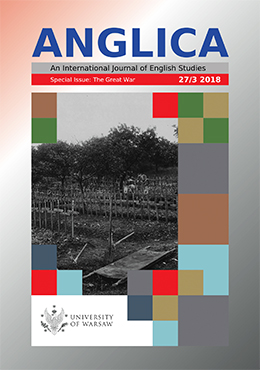How to Tell the War? Trench Warfare and the Realist Paradigm in First World War Narratives
How to Tell the War? Trench Warfare and the Realist Paradigm in First World War Narratives
Author(s): Martin LöschniggSubject(s): Theoretical Linguistics, Applied Linguistics, Translation Studies
Published by: Instytut Anglistyki Uniwersytetu Warszawskiego
Summary/Abstract: This paper will analyze how memoirs and novels of the First World War reflect the challenges which modern warfare poses to realist narrative. Mechanized warfare resists the narrative encoding of experience. In particular, the nature of warfare on the Western Front 1914–1918, characterized by the fragmentation of vision in the trenches and the exposure of soldiers to a continuous sequence of acoustic shocks, had a disruptive effect on perceptions of time and space, and consequently on the rendering of the chronotope in narrative accounts of the fighting. Under the conditions of the Western Front, the order-creating and meaning-creating function of narrative seemed to have become suspended. As I want to show, these challenges account for a fundamental ambivalence in memoirs and novels which have largely been regarded as paradigmatically ‘realistic’ and ‘authentic’ anti-war narratives. Their documentary impetus, i.e. the claim to tell the ‘truth’ about the war, is often countered by textual fragmentation and a “cinematic telescoping of time” (Williams 29), i.e. by a structure which implies that such a ‘truth’ could not really be articulated. In consequence, these texts also explore the relationship between fact and fiction in the attempt at rendering an authentic account of the modern war experience. My examples are Edmund Blunden’s Undertones of War (1928), Robert Graves’s Goodbye to All That (1929) and the novel Generals Die in Bed (1930) by the Canadian Charles Yale Harrison, as well as German examples like Ernst Jünger’s In Stahlgewittern (1920; The Storm of Steel, 1929), Ludwig Renn’s Krieg (1928; War, 1929) and Edlef Köppen’s Heeresbericht (1930; Higher Command, 1931).
Journal: ANGLICA - An International Journal of English Studies
- Issue Year: 27/2018
- Issue No: 3
- Page Range: 143-161
- Page Count: 18
- Language: English

